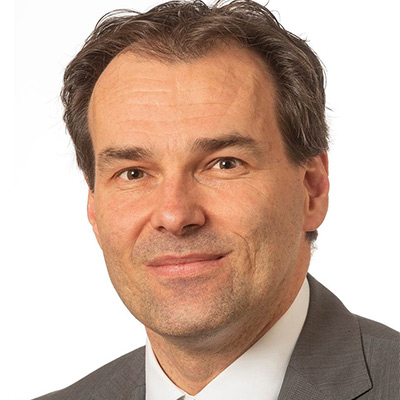WindEurope Bulletin
WindEurope Bulletin January 2021

15 January 2021
CEO Foreword
On behalf of WindEurope I would like to wish you a Happy New Year and all the best for 2021.
In this year’s annual message from our new Chairman, Andreas Nauen – which you will be receiving shortly – we refer to our Work Programme for 2021 which seeks to tackle 3 questions going forward: Where will we build new wind turbines? Who will be building them? And who will be buying the energy we produce?
The broader context is helpful to us. The EU has committed to climate-neutrality by 2050, it’s raised its 2030 climate target and, on the back of that, will now raise its 2030 renewable energy target. It’s also agreed the largest ever injection of public money into the EU economy in the form of the €750bn EU Recovery Plan. The challenge for us now is putting wind at the heart of Europe’s future-proof recovery. To create new jobs in Europe using European technology, and to support energy consumers who want to decarbonise with wind. Governments will need to support us: in particular, we need common-sense permitting rules, market and auction mechanisms that ensure stable revenues for wind farms and industrial policies that ensure we have a sustainable supply chain.
Looking back on 2020 we can be proud of the way our sector has responded to historically challenging circumstances. The effects of COVID and extensive lockdowns were widely felt. But wind has been resilient. Wind farms continued to operate as Governments saw them as an essential service. We continued to build new wind farms: onshore and offshore wind capacity both grew significantly. We continued to make new turbines, develop new technologies and to invest in tomorrow’s new wind farms. And at the political level, in addition to the new Green Deal targets I mentioned above, national Governments in Europe finalised their National Energy & Climate Plans for 2030 with reasonably ambitious goals for the expansion of wind.
Now let’s look ahead to 2021. What will be our actual priorities within those 3 main questions I’ve set out above? Here are some of the highlights …
- making sure the Recovery Plan money is well spent;
- securing the higher EU renewables target for 2030 and sharpening up some of the other rules in the EU Renewables Directive, especially on permitting;
- ensuring industrial policy supports our competitiveness, with the right approach to trade, R&I and skills;
- getting governments to support what we want to do with older wind farms that are reaching end of life – and making sure sustainability is central to our own approach to decommissioning and to everything else we do as an industry;
- and ensuring people around Europe understand the economic and social benefits that wind energy brings.
Our big event this year will be Electric City 2021, in Copenhagen on the week commencing 22 November. We’ve changed the date for obvious reasons and hope we will be able to see you all there in person. It’ll cover onshore and offshore wind, and everything linked to the electrification of the energy system. We’ll have new partners joining us for the first time from transport, heavy industry, district and domestic heating, storage and hydrogen.
Our Technology Workshop (covering resource assessment and analysis of operating wind farms) will be in Naples on 9-10 September. The call for abstracts is now open, so feel free to submit your proposals here. And our annual End-of-Life Issues & Strategies event (EoLIS) will be in Brussels on 4-5 November.
We look forward to working closely with you in what will be a crucial year for the wind industry and European economic recovery. I wish you an enjoyable read.

Giles Dickson
Policy News
EU-UK Trade & Cooperation Agreement: What it means for wind energy

On 1 January 2021, the United Kingdom’s new trading relationship between itself and the European Union took effect, bringing to an end the post-Brexit transition phase. As a major player in the European wind industry, particularly in offshore wind generation, Britain’s departure has several implications for the status of wind in Europe as a whole.
The EU-UK Trade & Cooperation Agreement (TCA) guarantees no tariffs or quotas on trade in manufactured goods between the parties, provided they comply with rules of origin. In addition to rules of origin, operators will have to complete import and export declarations and prepare for separate systems of conformity assessment. Additional paperwork will be unavoidable, but the UK government has transitional arrangements in place to facilitate imports until 30 June 2021.
Free movement of personnel becomes more complex, and in some cases, visas will be required. This will mean more administration if operators want to deploy EU personnel to the UK or vice versa.
The agreement contains a number of provisions on electricity trading. Notably, the agreement charges Transmission System Operators with developing a new system to couple day-ahead trade between the parties by April 2022. However, for the time being the day-ahead market over EU-GB interconnectors reverts to explicit trading.
The agreement commits the EU and the UK to continue cooperation on the North Sea, albeit within a separate forum to North Sea Energy Cooperation. The details of this new forum remain to be seen, but it will deal with the same issues as the existing body.
Finally, the agreement commits the parties to give “serious consideration” to the linking of their emissions trading systems. The UK has already set up a system that closely resembles the EU’s, albeit with fewer allowances and the addition of an Auction Reserve Price of £15 per allowance.
Available funding under the Innovation Fund
The Innovation Fund is one of the world’s largest funding programmes for the demonstration of innovative low-carbon technologies. The EU Emissions Trading System (EU ETS), the EU’s carbon pricing system, is providing the revenue for the Fund from the auctioning of 450 million allowances from 2020 to 2030 and any unspent funds from the NER300 programme.
In its first call for projects, it was 22 times oversubscribed with 311 project proposals submitted with a value of €21.7bn (including 58 relating to renewable energy). The Fund will allow only 70 projects to make a second stage submission by June 2021 and will eventually allocate the available €1bn figure to the best projects. The fund has now opened a call for small-scale projects with less than €7.5m in CAPEX and has a budget of €100m for allocation.
The call will support innovative, state-of-the-art projects that go beyond incremental innovation and that support the Green Deal objectives. The deadline to apply is 10 March 2021.
Projects will be evaluated according to the following award criteria:
- Degree of innovation. If a proposal scores less than the minimum threshold under this criterion, the evaluation ends (the remaining criteria are neither evaluated nor scored);
- Project maturity and greenhouse gas emissions avoidance potential. If a proposal scores less than 50% of total points under the project maturity criterion, if it does not meet the minimum requirements or is found to have a manifest error under the greenhouse gas emission avoidance potential criterion, the evaluation ends (the remaining criteria are neither evaluated nor scored);
- Scalability and cost efficiency.
The funds can be used in cooperation with other public funding initiatives, such as State Aid or other EU funding programmes.
Applicants will be informed about the results of the evaluation in the fourth quarter of 2021.
Find out more Watch the webinar
Members interview
This month, we sat down with Andor Savelkouls, Senior Director, European Renewables Advisory at Altenex Energy to discuss their role in enabling corporate renewable procurement and the growing importance of PPAs.
Members Success Stories
WindEurope welcomes the VSB Group as a new member
VSB, headquartered in Dresden (Germany), is a successful pan-European full-service provider in the renewable energy field. Founded in 1996, the company’s core business is national and international project development for wind farms and photovoltaic parks, their operational management and maintenance as well as operating its own parks. VSB also supports clients from industry and commerce in matters of energy production and efficiency, helping them to cut costs and CO2 emissions.
The use of wind turbines and photovoltaic systems to harness energy has brought electricity generation squarely into people’s everyday surroundings. This calls for public support and opportunities to influence decisions. In addition to carefully planning these infrastructure projects, making a success of the energy transition in cities and municipalities now depends more than ever on involving local residents and decision-makers. This is why VSB is certified and audited in project planning, implementation and operational management, cares strongly about incorporating comprehensive environmental and species protection measures into its construction projects and offers tailored concepts for public participation.
“Think globally and act locally” is therefore the motto of this wind and PV specialist, which currently operates from 22 offices worldwide. With a workforce of over 300 employees, VSB has commissioned installed capacity of more than 1.1 GW to date. “For us, business and climate protection go hand in hand. That’s why we have been developing projects with renewable energies for more than two decades, advising businesses, politicians and citizens on making the future sustainable, safe and cost-effective. We very much look forward to contributing this experience to the WindEurope association, in order to bang the drum for expanding wind energy and get even more people excited about green technologies,” said Marko Lieske, Managing Director of the VSB Group.
Events
Free webinar – Offshore Wind in Europe: Key trends and statistics
When: 11 February, 11:00-12:00 CET
Speakers:
- Lizet Ramirez Analyst – Offshore Wind
- Mattia Cecchinato Analyst – Sustainability & Offshore
- Christoph Zipf Press and Communications Manager
Curious to see how offshore wind has been faring recently? Join our WindEurope analysts as we address some of the latest developments within the European offshore wind industry, outlining key installations in offshore wind farms, supply chain activity, investment trends and the latest policy developments. This will be followed by a Q&A session for participants.
Free webinar – Wind Energy in Europe 2020: Trends, statistics and the five-year outlook
When: 4 March, 15:00-16:00 CET
Speakers:
- Daniel Fraile Montoro Head of Market Intelligence
- Ivan Komusanac Analyst – Markets & Wind Energy Technology
- Christoph Zipf Press and Communications Manager
In this webinar, we will be taking a look at the developments and major shifts in Europe’s wind industry during the exceptional circumstances of 2020 and plotting its course over the next few years. Join our team of WindEurope analysts as they outline key installations in wind farms, supply chain activity, and investment trends. We will also be looking at the direct impact of the COVID-19 pandemic on the industry, and the outlook for wind in Europe over the next 5 years. This will be followed by a Q&A session for participants.
WindEurope Technology Workshop: Resource Assessment & Analysis of Operating Wind Farms 2021
This year’s edition of the annual Technology Workshop is scheduled for the 9-10 September and will be held in Naples. We are already getting underway with preparations! Join us for a comprehensive look at the state of modern wind energy technology, and how it is evolving to meet outstanding challenges.
Three main tracks to be looked at as part of the Workshop programme include:
- Resource Assessment
- Analysis of Operating Wind Farms
- Artificial Data and Intelligence
Our call for abstracts for this event has now opened. Please check out the website for topics and start sending in your proposals! The deadline for submission will be 28 February. Feel free to have a look over our programme and sponsors as well!
WindEurope Electric City 2021 – New date
Due to the ongoing COVID situation, the Exhibitor Council has unanimously voted to postpone the event to the third week of November 2021.
The risk-free cancellation policy will be extended accordingly with a new deadline of 23 August 2021.








